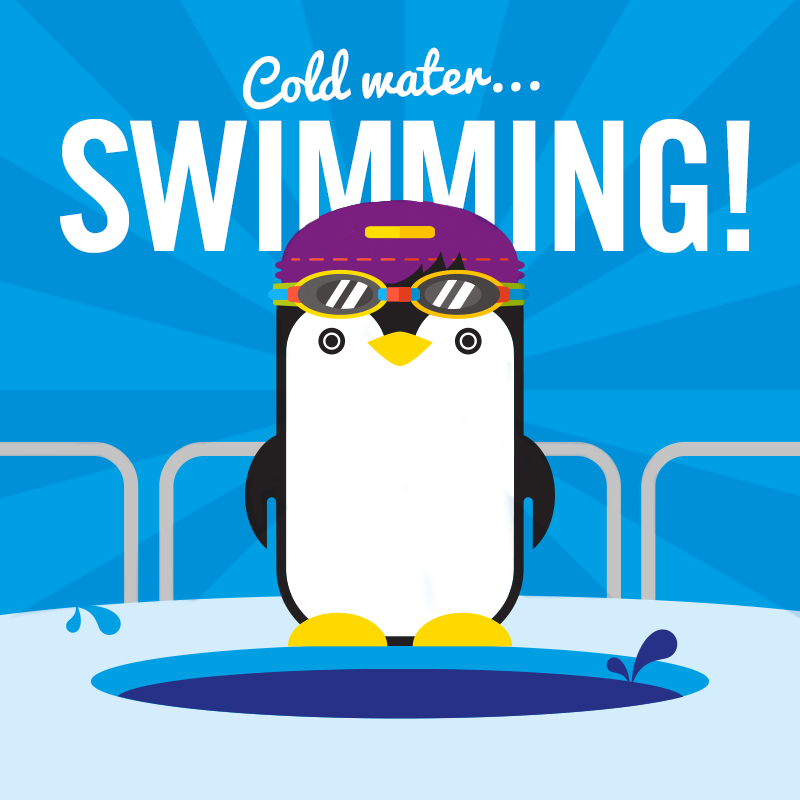January sees the return of the cold-water swimming championships to South London. Once again Tooting Bec’s oceanic lido, home of the South London Swimming Club, plays host to over 800 hardy swimmers from nearly a score of countries. From the serious to the frankly frivolous – and you should see some of those silly hats – it’s one of the high marks of the cold-water calendar.
Unless you’ve had your head in the sand, chances are you’ll have noticed that cold-water swimming is getting a bit of media coverage. And it’s a growing activity. Membership of the Outdoor Swimming Society has leapt from 300 in 2006 to more than 27,000. So what’s it all about?
For most of us, the thought of leaving our warm and sleepy beds on a January morning to fling ourselves into freezing water is tantamount to madness. But before you pull the duvet back over your ears, consider some of the health benefits.
For reasons not yet fully established, cold water boosts your immune system. Research conducted by the Extreme Environments Research Group at Portsmouth University suggests that cold water swimmers have fewer colds. An icy swim after vigorous exercise can also relieve stiffness – cold water is an anti-inflammatory. A study from Finland also suggests that an icy plunge is good for fibromyalgia, rheumatism and asthma. Aficionados also swear that it can give a Viagra-like boost to flagging middle-aged libidos – although you may have to wait until you warm up to appreciate the effect, especially if you’re a man.
There is also huge anecdotal evidence that cold water swimming lifts mental health. Regular exposure to cold water primes your fight or flight response – getting in never gets easier – which may help you manage stress better. An icy dip floods your body with adrenaline, your brain with endorphins and leaves you feeling charged for the rest of the day. For city dwellers there’s exercise, exposure to natural light and the connection with something natural – all known to ease the anxieties of modern life. And of course, there’s always the camaraderie. Nothing quite like a common foe – aka freezing water and the possibility of hypothermia – for making friends.
And this leads us to safety. Cold water swimming can be life-affirming fun, but there are some risks you need to know about.
Shock
Hitting icy water can trigger cold shock. If you’re not ready for it, you’ll likely start gasping uncontrollably. If you’re in choppy water, hyperventilating can be deadly. So, unless you know what you’re doing get in slowly somewhere safe and let your body get used to it before you start swimming.
Cramp
Cold water can trigger cramp – particularly if you’re already susceptible. So be careful when swimming out of your depth.
Hypothermia
Hypothermia is a potentially hazardous drop in your core body temperature, usually following sustained exposure to the cold. It can creep up on you unawares when cold water swimming, so start your exposure gradually.
Wild water
Although many people do their cold-water swimming in open air pools, in Britain we have access to an enormous variety of open water: lakes, rivers and thousands of miles of coastline. But be careful. Only swim where you know it’s safe and never swim alone.
If you’re new to cold-water swimming, or you’re thinking about taking it up, join a club. Old hands can show you the ropes, they’ll keep an eye on you to begin with, and best of all they’ll know where to get the best cuppa to warm you up afterwards.


















